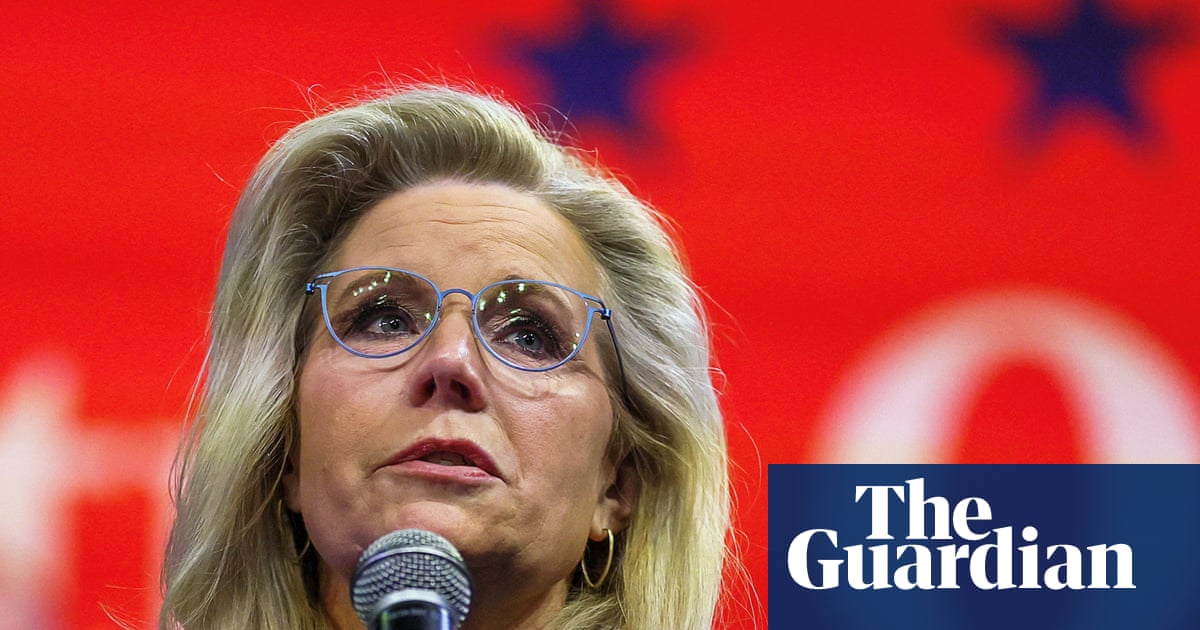The former Wyoming congresswoman Liz Cheney “hopes to be able to rebuild” the Republican party after Donald Trump leaves the political stage. Mitt Romney, the retiring Utah senator and former presidential nominee, reportedly hopes so too.
Among other prominent Republicans who refuse to bow the knee, the former Maryland governor Larry Hogan is running for a US Senate seat in a party led by Trump but insists he can be part of a post-Trump GOP.
Michael Steele, the former Republican National Committee chair turned MSNBC host, advocated more dramatic action: “We have to blow this crazy-ass party up and have it regain its senses, or something else will be born out of it. There are only two options here. Hogan will be a key player in whatever happens. Liz Cheney, [former congressmen] Adam Kinzinger and Joe Walsh – all of us who have been pushed aside and fortunately were not infected with Maga, we will have something to say about what happens on 6 November.”



It’s more fundamental than that. First-past-the-post voting systems inevitably turn into two-party rule. It’s built into the foundations of how the American government is voted for.
You see the same two-party rule in Canada even tho we have other viable, well-established parties.
Fptp is the problem, but neither of our (or your) major parties want to change the rules because it works for their benefit 50% of the time.
Im actually on the opinion that FPTP is not the main problem, it’s flawed but the actual problem is the amount of power the president has, you could still have FPTP in a parliamentary system that allows for smaller parties to have power in alliances and stuff like that.
For federal level, I can agree that the lack of ranked-choice hurts third party chances. Voters see too much risk in not voting for a major party.
That being said, well-coordinated local and state-level can definitely get a higher rate of success and show that there’s more to those parties besides political posturing. I’ve seen more campaigning for a primary for my local sheriff’s office this year than I had ever seen for any third party candidate ever at a local level. If the third parties focused on the down ballot, they would have more opportunity to show that they can put forward competent candidates to build trust for higher elected positions.
Most of them are too busy grifting. They’re stirring up local funding collecting all the people they can and then getting a bigger payday when the 4-year elections roll around.
You should watch the video I linked, it’s only 6 minutes long. The problem is that if you did manage to get more success for a third-party candidate that would be a bad thing. It would mean that the resulting government will be less likely to reflect your positions and ideals than it would if there had been no third-party candidate you supported.
In a first-past-the-post voting system trying to figure out how to make third-party candidates viable is a self-defeating goal. Unless you’re focusing on trying to make third-party candidates who appeal to your opponent’s voting group more viable, that is. Which is why you keep seeing sneaky donations from right-wing PACs to the Green party and such. The Republicans would love to see the Green party become a more prominent and viable option for left-leaning voters. And likewise, a lot of Democrats are cheering for RFK Jr. to be on the ballot because he draws more support from the right than from the left.